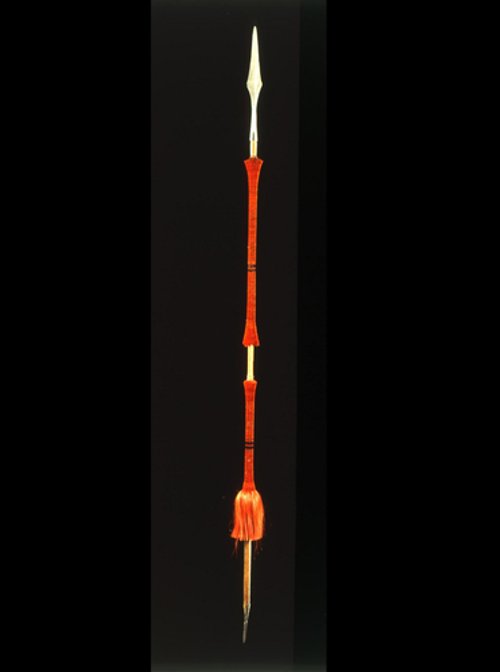The spear is for ceremonial purposes and not used in battle
Entry in the main historical catalogue: Naga spear. Material: shaft: wood; tip: iron; wrapping: goat hair. Characteristics: flat tip, set into shaft. Finished off with a two-part wrapping, with a 12 cm space between sections: short hair is attached to the shaft with string to create a velvety covering. Two black rings in the middle of the two sections. A tuft of long hair at the end of the second section. A rounded tip is set in place at the end of the shaft.
Colours: shaft: light brown; goat hair: red/black
Dimensions: total length: 226 cm (shaft: 170 cm, head: 41 cm, tip: 15 cm, wrapping: 69 and 60 cm.)
Collector: Ehlers, Otto Ehrenfried
en

